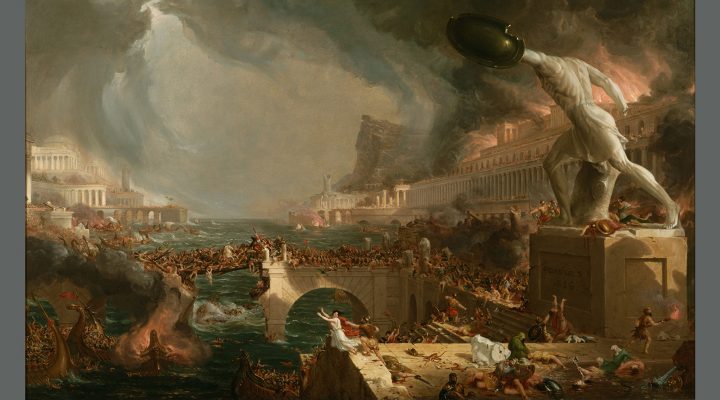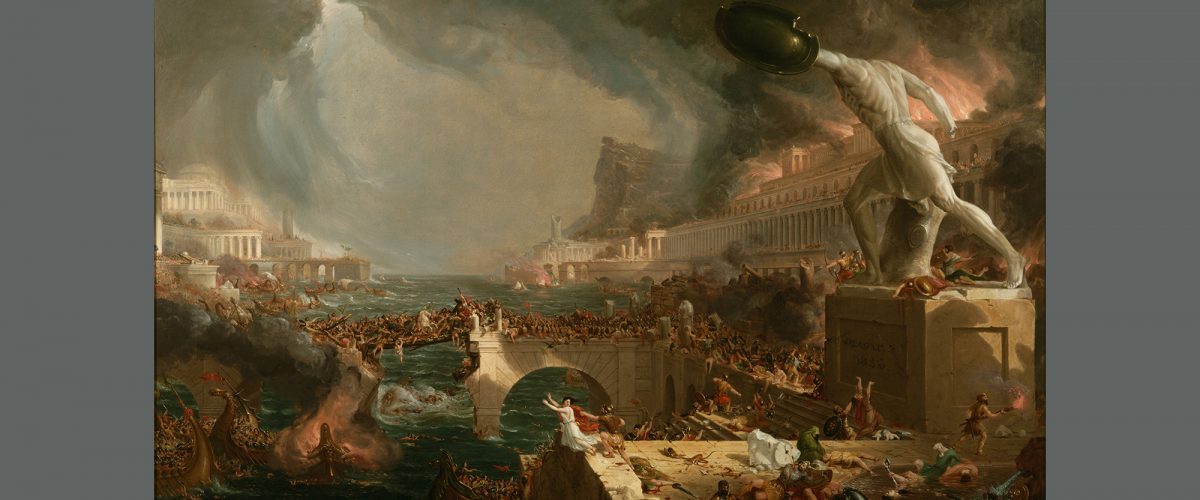In a recent essay by Sen. Josh Hawley, R-Mo., called “Our Christian Nation,” he argues Christians should bring the gospel to bear on every aspect of life — society, economy and most especially on government. It’s certainly a thoughtful essay, and Hawley makes several compelling points. I found myself nodding along at many of the problems he describes, even if I didn’t always agree with his proposed solutions.
Yet there seemed to be a fundamental misunderstanding at the heart of it. I was struck by some lines about halfway through:
We have long been tempted to divide the world into “sacred” and “secular,” the City of God and the City of Man, with society and government written off as necessary evils. This mentality gives Christians a pass, an out, an excuse to do nothing when instead we have a duty, to our neighbors and our Lord, to work for a just society leavened by the gospel.”

Andrew Garnett
Hawley’s allusion to the “City of God” has a long history. To understand it, we need a brief history lesson.
Imagine the world’s sole superpower in decline, beset by enemies within and without. The economy is different than it used to be, inflation is rampant, and society and government are changing at a disconcerting pace. Is this the United States in 2024? No — that would be 1,600 years too late, and the wrong continent to boot. This was the Roman Empire in 410.
In that year, an army of Goths — a Germanic people group who had an on-again, off-again relationship with the Roman Empire — plundered the city of Rome. It was the first time in 800 years a foreign army had entered the city.
It was a shocking moment to people around the Mediterranean. For centuries, the empire had been the dominant superpower. It was the only civilization generations of people had ever known. Moreover, for the last hundred years, the empire had been a key player in the Christianization of the known world. Christian emperors had built churches, settled theological disputes and encouraged millions of people to convert to Christianity.
But with the sack of Rome, it all seemed to be crashing down. Jerome, a Christian priest at the time, said it was as though “the whole world perished in one city.”
“Augustine sought to assure the Mediterranean world that the end of Rome was not the end of everything.”
But a few clear-eyed thinkers knew this was not the end of everything — and that in fact, the sack of Rome might be an opportunity to return to something even better. Chief among these visionaries was Augustine, a bishop in North Africa, who wrote a book Hawley alluded to: The City of God. Augustine sought to assure the Mediterranean world that the end of Rome was not the end of everything.
Rome may have offered benefits to the churches, but in the end it was just a city like any other. Christians were not ultimately citizens of Rome. They were citizens of heaven.

Stained glass depiction of St. Augustine
Of course, this idea was not original to Augustine. He was merely expanding on ideas he found in Christian Scripture — ideas the churches had found convenient to forget when they benefitted from Rome’s patronage. Augustine simply recognized and restated the general outlook of the New Testament: The city of God can never be equated with a human government.
Jesus summed this up pithily by saying humans owed some things to the Roman emperor, and other things belonged to God (Mark 12:13-17). He expounded on this at greater length when speaking with a Roman governor; Jesus told this imperial powerbroker the kingdom of God was not like a kingdom of this world, and that Jesus held a qualitatively different sort of power than human leaders do (John 18:28-19:16).
A few decades later (in a sermon that probably was sent to the city of Rome) the heroes of the faith were repeatedly compared to those who belong to no earthly city, because their citizenship was in heaven. The sermon finally concluded by reminding the congregation that in this world “we have no lasting city, but we are looking for the city that is to come” (Hebrews 13:14).
Later, a circular letter to Christians in Asia Minor encouraged them to honor the emperor, but to hold God in true reverence (1 Peter 2:17). The last book in the New Testament develops the idea of two cities in the greatest depth. The author of Revelation knew there was a city of Jerusalem that existed literally and physically on earth, but he also imagined a heavenly Jerusalem in which all of God’s promises would be fulfilled (Revelation 21).
“Some Christians have become so accustomed to the status quo that we can’t imagine a country in which God and government are not linked.”
History, as it so often does, has almost come full circle. Today, Christians in the United States have enjoyed a position of dominance and privilege for generations. Some Christians have become so accustomed to the status quo that we can’t imagine a country in which God and government are not linked. Hawley describes it as a “temptation” to believe the city of God is different from secular governance, because he thinks they should be one and the same.
But this is wrong. The situation is actually the reverse: The temptation is to believe the lie — like most Christians in the year 410 did — that God and government are supposed to go hand in hand. Augustine had it right in The City of God, and before him the authors of the Christian Scriptures understood the truth too.
We can walk the way of Jesus in a society that favors Christians, or we can walk the way of Jesus in a society that is hostile to faith. Justice, mercy and love can always characterize our lives. Churches and individual believers can act to make the world a better place. We don’t need a Christian nation to do any of these things.
Jesus, Paul and the first Christians changed the world, and they did it in a decidedly non-Christian society.
We have it on good authority: Here we have no lasting city, but we are looking for the city that is to come.
Andrew Garnett serves as pastor of Hampton Baptist Church in Hampton, Va. He is the author of Christians and the Roman Army: Lessons for Today.


